While the fall movie lineup continues to shift due to studios adamantly deciding not to fairly pay the writers and actors responsible for them being in business in the first place, not much has changed when it comes to August. Aside from A24 yanking Julio Torres’ Problemista from its August 4 opening, the rest of the calendar has stayed intact and here are the films that should be on your radar.
13. What Comes Around (Amy Redford; Aug. 4)
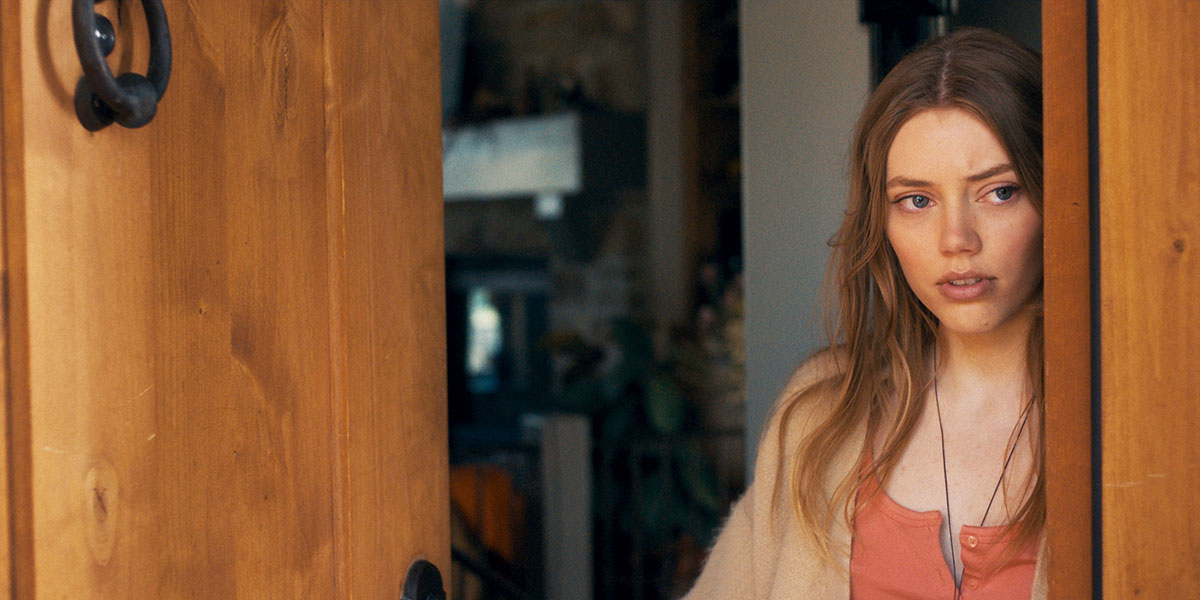
One of the most divisive films to premiere at TIFF last year was Amy Redford’s What Comes Around (formerly titled Roost). Led by Grace Van Dien, Summer Phoenix, Jesse Garcia, and Kyle Gallner, the thriller tracked a young love affair that becomes a menacing game of cat-and-mouse where nothing is what it seems. Jared Mobarak said in his review, “What Comes Around is a tricky film to talk about without massive spoilers unless, of course, the eventual marketing campaign decides divulging its secrets will help them sell it. I’m hoping they ultimately choose to keep its twists-and-turns under wraps because going in blind adds a dimension that I’m sure playwright Scott Organ (who adapts his own The Thing with Feathers) intended and director Amy Redford matches. As she mentions in the press notes, What Comes Around is about provocation. It’s about telling us one thing only to transform it into another thing and spark a conversation that many of us still might not want to engage in. It’s about exploiting one’s power over another and falling prey to theirs. It’s about double standards. It’s about control and debilitating shame.”
12. Scrapper (Charlotte Regan; Aug. 25)

Seen in last year’s Oscar-nominated Triangle of Sadness, Harris Dickinson (also of Beach Rat) is back this year with Scrapper. Christopher Schobert said in his Sundance review, “It feels serendipitous that Scrapper, a somber slice-of-life British melodrama, screened at the Sundance Film Festival just days after hysterical reporting on Prince Harry’s book Spare and the announcement of King Charles’ coronation plans. Finding it a bit hard to sympathize and identify with––or care about––the ongoing drama surrounding the U.K.’s Royal Family? You can bet the characters in Scrapper wouldn’t care less, either. Audience members watching Charlotte Regan’s film will, however, care deeply about 12-year-old Georgie and her existence on the outskirts of London.”
11. Before, Now & Then (Kamila Andini; Aug. 25)

Ever since Rory O’Connor reviewed Kamila Andini’s Before, Now & Then some 18 months ago at Berlinale, we’ve been awaiting a U.S. release. He noted, “The social and political upheavals of 1960s Indonesia provide a hardened backbone to what is otherwise a tale of longing and simmering romance. It’s the fifth work by Kamila Andini, an Indonesian filmmaker whose dreamy 2017 film Seen and Unseen became a festival darling, screening in Berlin and Toronto that year to acclaim. Before, Now & Then sees her return to the German capital––premiering in competition this week, a sharp ascendency––with her most ambitious film yet. Drawing a number of deeply felt performances from her cast, it is an aching period piece, if frankly staid, that comes complete with many of the genre’s most reliable tropes: sharp intakes of breath; glances stolen through laced curtains; and love, as ever, in opprobrium.”
10. A Compassionate Spy (Steve James; Aug. 4)
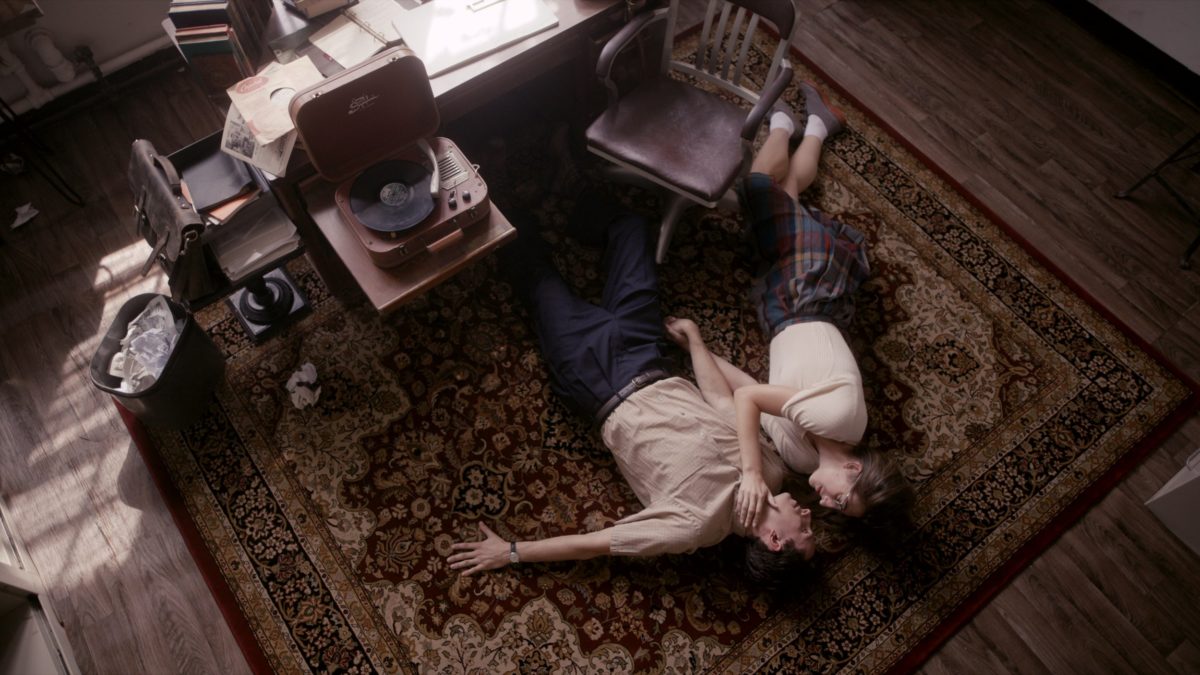
While the latest film from Hoop Dreams and Life Itself director Steve James premiered last fall at the Venice Film Festival and Telluride, it’s clear why Magnolia Pictures wanted to wait until later this summer for a release. Ideal viewing as Christopher Nolan’s blockbuster biopic Oppenheimer continues to make its mark in theaters, A Compassionate Spy tells the thrilling story of controversial Manhattan Project physicist Ted Hall, who infamously provided nuclear information to the Soviet Union, told through the perspective of his loving wife Joan, who protected his secret for decades.
9. Fremont (Babak Jalali; Aug. 25)
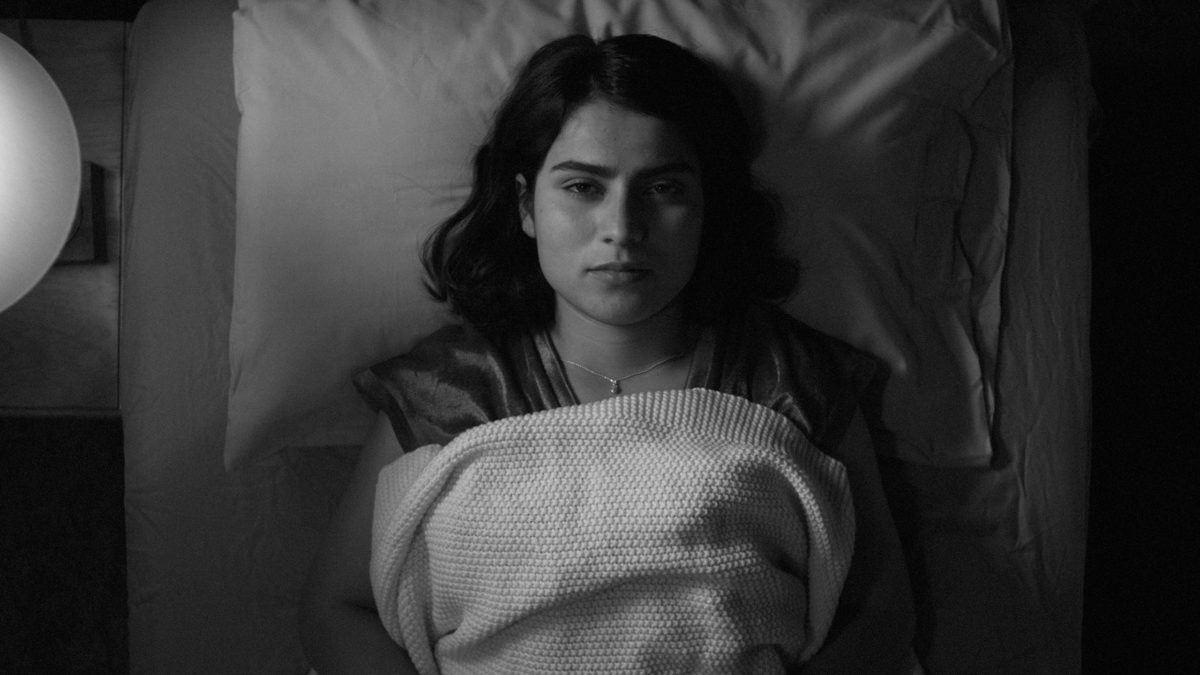
A highlight at Sundance earlier this year, Babak Jalali’s Jarmuschian tale of assimilation and identity, Fremont, is now gearing up for a release later this month. Michael Frank said in his Sundance review, “Director Babak Jalali’s fourth feature is sly, droll, finding humor in the darkness surrounding Donya. When she meets with her therapist, a curious, sad Gregg Turkington, he spends the majority of their sessions talking about his favorite immigrant story, White Fang, a book which only grows in their shared estimation by the film’s end. When Donya is given a promotion as a fortune cookie writer, she takes this as an opportunity to meet someone new, to possibly give more of herself to another person.”
8. King Coal (Elaine McMillion Sheldon; Aug. 11)

One of the most impressive films at Sundance was the latest from Emmy-winning and Oscar-nominated filmmaker Elaine McMIllion Sheldon. With stunning cinematography, King Coal explores the lives of those in Central Appalachia and how they are affected by the coal industry. John Fink said in his review, “A poetic ode to the blue ridges of Central Appalachia, King Coal often evokes an IMAX educational film in its scope, space, and presence. The film explores the complex history of coal as a specter that looms over the region. The precious rock is celebrated throughout, the picture never veering off-course to engage in a discussion of contemporary politics. It’s instead built on West Virginia itself, a land still tied to mythology in some ways. ‘Who are we, without a king,’ Lanie Marsh (the young star of the picture) asks.”
7. Carpet Cowboys (Emily MacKenzie and Noah Collier; Aug. 25)
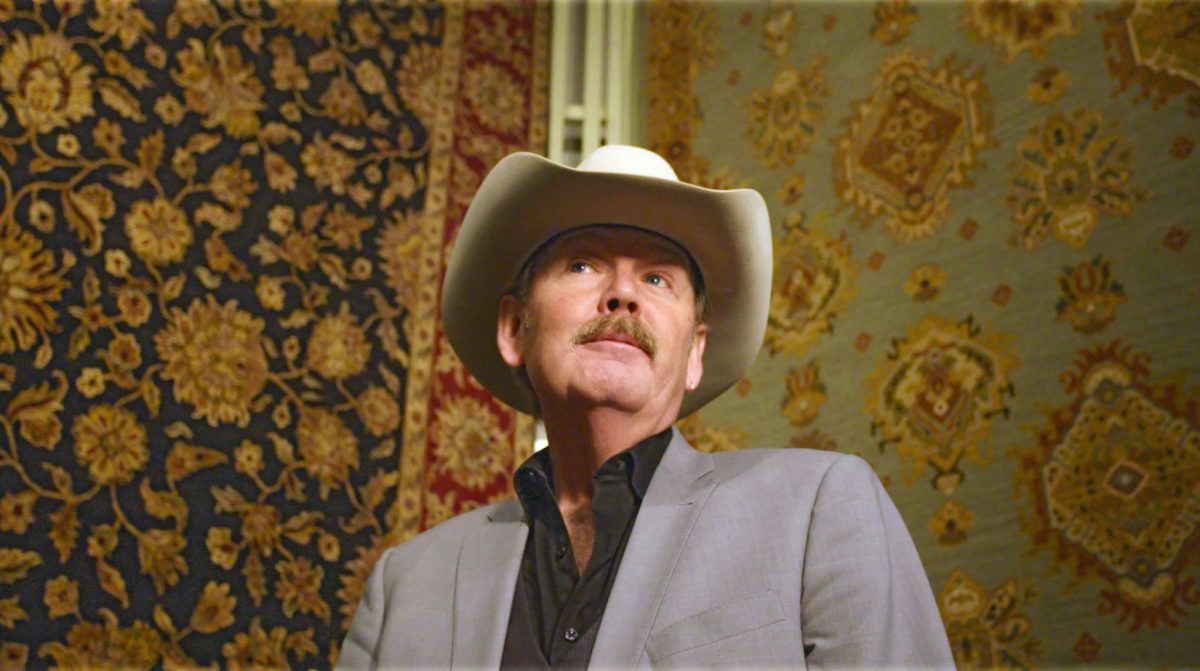
While How to with John Wilson is closing out its brilliant, three-season run, its creator has boarded a new project that shares his passion for looking at the world––and the unique people inhabiting it––with a humorously observant eye. Emily MacKenzie and Noah Collier’s directorial debut Carpet Cowboys, executive-produced by John Wilson, begins as a peculiar look inside Dalton, Georgia––also known as the “Carpet Capital of the World”––before unexpectedly expanding into a globe-trotting adventure that fascinatingly examines expat culture, the faltering American Dream, and the search for companionship.
6. Love Life (Kōji Fukada; Aug. 11)

Emerging as one of the most accomplished Japanese directors of the last decade, Kōji Fukada is back with his next feature. Rory O’Connor said in his Venice review, “Love Life is one of those films that really wears its screenplay. The plot follows a mother’s attempts to come to terms with the death of a child, but it’s more about unusual paths the journey takes for her to get there. The director is Kôji Fukada, a filmmaker who studied under Kiyoshi Kurosawa and cites Rohmer as a key influence. The first of Fukada’s films to complete for one of the grand festival awards, it premiered this week in what has been if not the best, then at least the glitziest Venice lineup in recent memory. Amongst the stars, Love Life (named for an Akiko Yano song of the same name) is jarringly everyday in color palette and setting, but has just the right amount of scope, filmmaking nous, and unusual choices to hold its own and even stand out.”
5. The Eternal Memory (Maite Alberdi; Aug. 11)
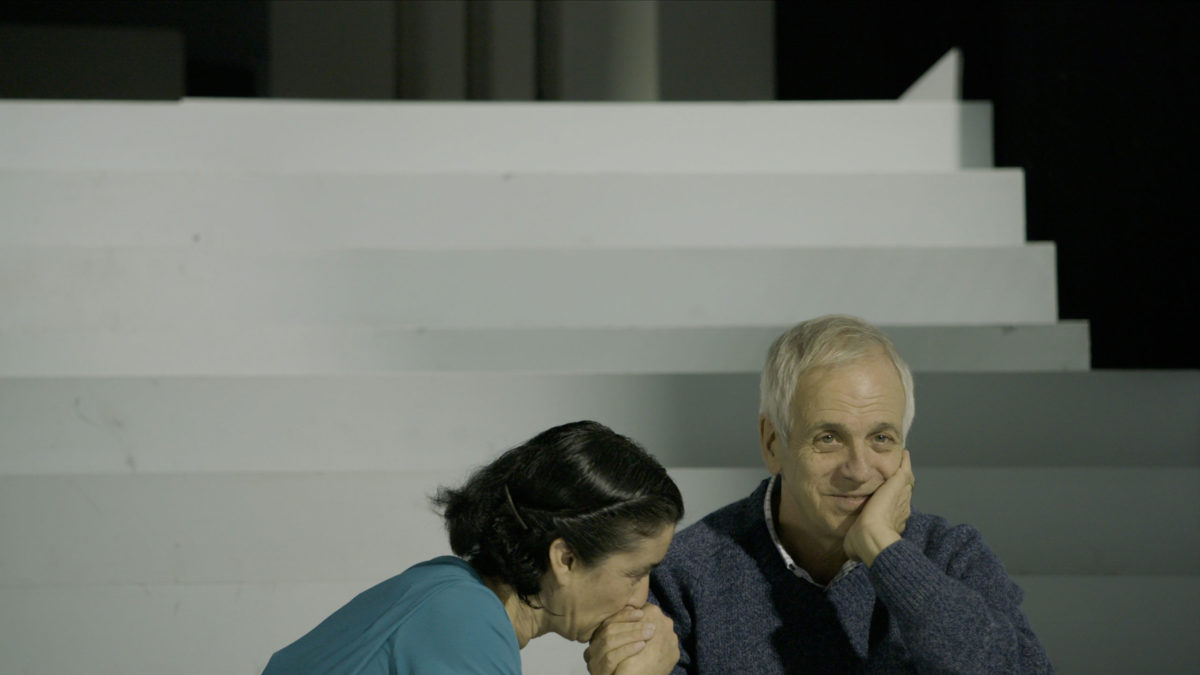
Following her Oscar-nominated documentary The Mole Agent, director Maite Alberdi is back with another look at the oft-overlooked realm of geriatric life. The Eternal Memory, which picked up a Grand Jury Prize at the Sundance Film Festival earlier this year, follows the story of Augusto and Paulina, who have been together and in love for 25 years. Eight years ago, their lives were forever changed by Augusto’s Alzheimer’s diagnosis. Jose Solís said in his Sundance review, “Filmmaker Maite Alberdi seems keen to remind us non-fiction cinema can belong to different genres rather than reinforce some notion that they are a genre unto themselves. In the delightful The Mole Agent, she delivered a thriller of the absurd; a bittersweet detective movie in which an elderly man infiltrates a nursing home where there are suspicions of elderly abuse. With The Eternal Memory, she tackles romance and tells one of the most moving love stories in ages.”
4. The Adults (Dustin Guy Defa; Aug. 18)

After a fairly quiet few years (at least since his iconic stint in David Lynch’s Twin Peaks: The Return), Michael Cera is back in the spotlight. Now seen in theaters across the world as one of the most memorable parts of Greta Gerwig’s Barbie, his reunion with writer-director Dustin Guy Defa (Person to Person) will hopefully achieve similar box-office success. Rory O’Connor said in his Berlinale review, “Six years after directing his last feature, Dustin Guy Defa returns with The Adults, a film of complicated shared histories and gradually revealing inner lives. With his relatively sprawling Person to Person, Defa followed a wide array of characters over five interweaving storylines. This time he focuses on one family and, closer still, on an unmistakable feeling: that of moving out and growing up, only to return home and realize all that delicately assembled adulthood was merely a façade. Playing out across a leafy town in upstate New York, The Adults follows a trio of siblings as they reunite: the brother who went away and the sisters who did not.”
3. Our Body (Claire Simon; Aug. 4)
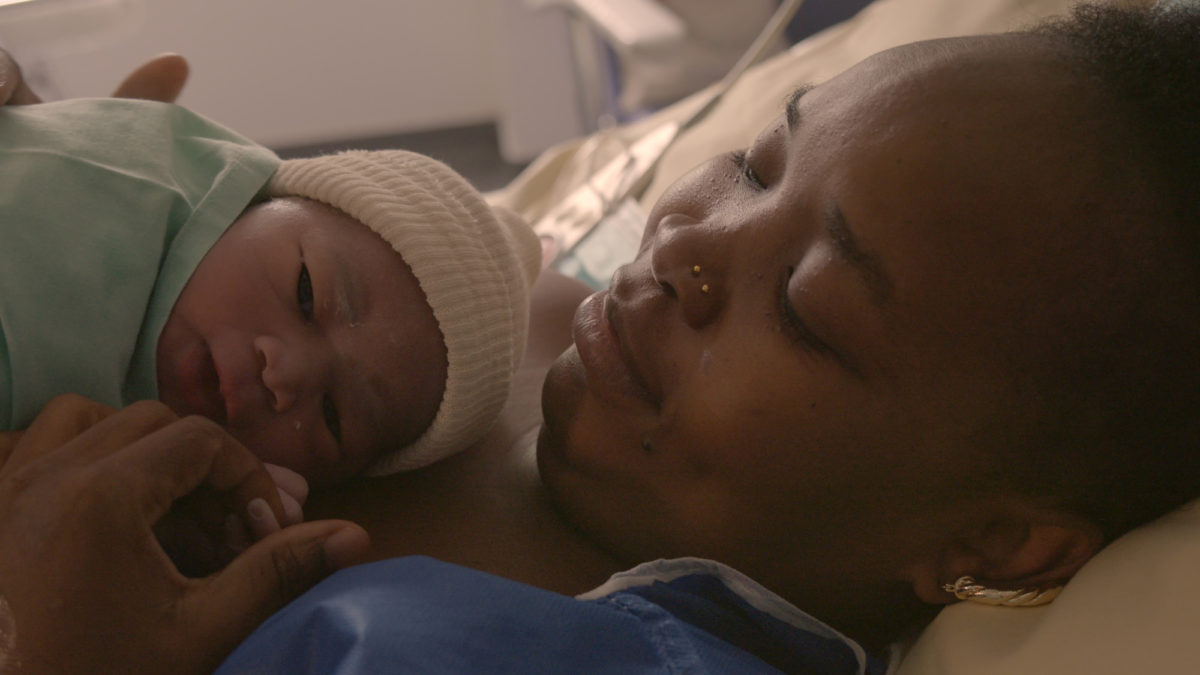
After recent films on Marguerite Duras, a filmmaking academy, high school, and more, Claire Simon has turned her eye toward the female body. Darren Hughes said in our summer preview, “Claire Simon cites Frederick Wiseman’s Hospital (1970) and Near Death (1989) as key sources of inspiration for her latest film, and for much of its 168-minute runtime Our Body does function, à la Wiseman, as a study of an institution––in this case, the various units of a public hospital in Paris where women receive all manner of care, including treatment for pregnancy, fertility, gender transition, cancer, and end-of-life needs. Simon and her all-female crew observe their subjects in close-up; except for occasional establishing shots in hallways and the garden courtyard, the camera is seldom more than a few feet from the women and one trans man, their companions, and the doctors, nurses, and technicians who all perform their jobs with uncommon professionalism and grace. That the camera is likely capturing an idealized version of the daily grind of modern healthcare––every person we see has signed a waiver and is presumably putting on their best face––is mostly beside the point, because Simon is interested primarily in the strange, beautiful, holy machinery of bodies.”
2. Bottoms (Emma Seligman; Aug. 25)
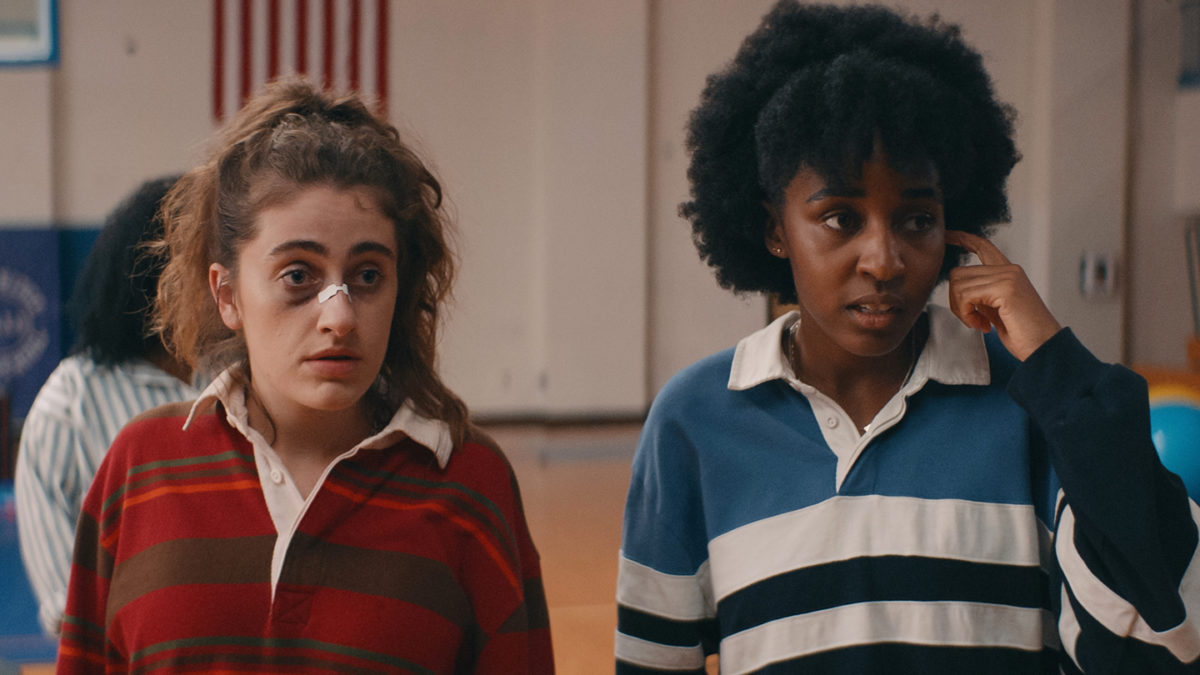
Following their break-out hit Shiva Baby, Emma Seligman and Rachel Sennott quickly amassed the resources for their follow-up, Bottoms. Also starring Ayo Edebiri, Ruby Cruz, Havana Rose Liu, Kaia Gerber, Nicholas Galitzine, and Marshawn Lynch, the Elizabeth Banks-produced comedy follows a pair of high school seniors who set up a fight club in order to hook up with cheerleaders. Jake Kring-Schreifels said in his review, “After collaborating on their claustrophobic chamber drama Shiva Baby, Seligman has re-teamed and co-written a joke-heavy screenplay (boasting an impressive hit rate) with Sennott, expanding her canvas into classrooms, gymnasiums, and football fields that blends satire and melodrama into functional accord. The result is a riotous affair, a lacerating and hyper-violent insult fest that pulls from Wet Hot American Summer, But I’m a Cheerleader, and Not Another Teen Movie and still manages to carve its own surrealist place in the genre’s rich pantheon.”
1. Passages (Ira Sachs; Aug. 4)

Taking the Scorsese wisdom of “more than 90% of directing a picture is the right casting” to heart, Ira Sachs’ radiantly sexual three-hander Passages couldn’t have assembled a finer trio of actors to explore modern love in all its splendor and messiness. Tomas (Franz Rogowski), a German filmmaker finishing up his latest shoot, is married to Martin (Ben Whishaw), but when Agathe (Adèle Exarchopoulos) comes into Tomas’ life, his world is torn asunder with a fiery passion. In his most mature and focused work to date, Sachs stays mostly centered on Tomas as his shifting heart gets pulled in different directions, Rogowski’s fierce magnetism transfixing the viewer even as his character’s behavior grows all the more erratic. Continue reading my review.
More to See
- Dreamin’ Wild (Aug. 4)
- Klondike (Aug. 4)
- Teenage Mutant Ninja Turtles: Mutant Mayhem (Aug. 4)
- The Meg 2: The Trench (Aug. 4)
- Lola (Aug. 4)
- Men of Deeds (Aug. 4)
- Aporia (Aug. 11)
- Between Two Worlds (Aug. 11)
- The Pod Generation (Aug. 11)
- Stay Awake (Aug. 14)
- birth/rebirth (Aug. 18)
- Mutt (Aug. 18)
- The Elephant 6 Recording Co. (Aug. 25)
- Piaffe (Aug. 25)
- Our Father, The Devil (Aug. 25)
